- Home
- Alison Weir
Innocent Traitor Page 8
Innocent Traitor Read online
Page 8
“Why can’t you be like Jane?” she says. “Jane’s a good girl. She sits still and does her lessons. But you, you scamp, you’re a fidget.”
Katherine just smiles. She has such charm. My mother says that someday she’ll make some lucky man a decorative wife. She never says such things about me. In fact, I’ve been told that, although I must marry to bring honor and profit to our House, I’m too thin and too bookish and too freckled to snare a husband. So I’ve decided to leave all that to Katherine. I’d prefer to be left alone with my books.
Frances Brandon, Marchioness of Dorset
WESTMINSTER, WINTER 1543
“There is good news from Scotland!” cries Henry, bursting into my chamber as I sit there checking the accounts with the steward, and shooing the poor man, my startled ladies, and our assorted yapping lapdogs out the door. “Listen, Frances. The Scottish Parliament has refused to ratify the treaty. They do not want their kingdom being ruled from Westminster.”
“Blessed be God!” I cry, jubilant, laying down my quill and closing the ledger.
“The King is furious,” my lord says happily, sitting down beside me at the oak trestle and grasping my hands. “He sees his hopes of a united Britain fading and says he feels insulted on his son’s behalf. He is now determined to teach the Scots a lesson and has commanded Lord Hertford to muster an army.”
“These are indeed hopeful tidings. Is it likely that the King will win this war?”
“We won Flodden,” Henry reminds me. “Slaughtered them. But we were massacred ourselves at Bannockburn. It’s in the hands of God. And I would be committing treason if I said I hoped the King will not win.”
“But that is what we both hope, isn’t it?” I whisper, smiling. “Let’s hope that God is on our side.”
Henry is rarely to be seen at home these days. He is in constant attendance on the King, not only seeking advancement and preferment, like any of the other noble vultures at court, but also in the hope of picking up any new information about what we call the marriage situation. As for me, I am frequently with the Queen and have left Mrs. Ellen to order my household and children in my absence. I suspect that, under her rule, there will be some laxity and fewer beatings and scoldings than are desirable. Mrs. Ellen is a kindly and competent nurse, but she is deplorably soft.
To my sorrow, I have not conceived again. On the few occasions when we do land up in bed together, Henry and I enjoy our couplings, for we have ever been in lust with each other, but it seems that God has closed His ears to our prayers for a son, which is the one thing that my lord desires most. Other men have sons, he says—why not he? But we have to face it: if I do not bear him a son, his title will pass to Jane, or rather to the man she marries. And if our plans come to fruition, our title will be absorbed into the Crown, which means that the noble name of Dorset will fall into abeyance. Henry cannot bear the thought. He wants his dynasty to live on, so we must not give up hope. I comfort myself in the knowledge that I am still only twenty-six, and women have been known to conceive and bear children well into their forties. We must keep on at our prayers—and our less sacred endeavors!
The news from the north is cataclysmic. Lord Hertford’s army marched north just before Christmas to begin what people are calling the “rough wooing” of the Queen of Scots. The King’s command was to lay waste to the southern parts of Scotland, to sack, burn, and subvert the country, sparing neither man, woman, nor child. Hertford has obeyed his orders to the letter. Leith, Edinburgh, Melrose, Jedburgh, all were devastated and fired, as our soldiers swept down across the borders to Berwick, leaving a terrible trail of destruction in their wake.
Far from capitulating in the face of such savagery, the Scots have grown ever more resolute and have formed an alliance with France, with which England has long been at odds. The French declared themselves only too happy to offer asylum to the little Queen, who is half-French through her mother, and she was spirited away across the sea in the dead of night, much to my uncle’s fury. He was even less pleased to learn that the Scots had agreed that she should be brought up at the French court as the future bride of the young Dauphin, which has happily, and finally, put paid to His Majesty’s plans to marry her to Prince Edward.
We can express our jubilation only in private.
“Now the way is clear for Jane,” Henry declares over a toast to the future. “But we must bide our time until the right moment. Yet I think that might not be long in coming. His Highness is so offended by the perfidy of the Scots and the French that he may well heartily embrace the idea of an English bride for his son.”
“A bride,” I add, repeating what I have said many times before, “who has Tudor blood in her veins and is the Prince’s own cousin.”
My lord turns to me.
“I think,” he says, “it is time Jane commenced her education.”
“I entirely agree. And the Queen has graciously agreed to help in the matter of finding a suitable tutor. It would be sensible to take her advice. She has shown great interest in Jane, and you know how assiduous she has been in supervising the education of the Prince and the Lady Elizabeth.”
I am privately relieved that Queen Katherine has offered her assistance in this matter, since although I can read and write adequately, I have no great interest in book learning, or much understanding of the mysteries of academic disciplines. I was traditionally educated, well drilled in dancing, riding, music making, embroidery, and household management, like nobly born girls used to be before this newfangled craze for teaching them the same subjects as boys. And I am glad of it—I need nothing more. All I’ve ever really cared for is hunting, hawking, good food and wine, sex, fine clothes, and the high life at court.
The Queen, on the other hand, has a reputation as a scholar. She is interested in the new learning and the ancient works of Greece and Rome and loves nothing more than a debate about religion. Often I have seen her indulge in a friendly argument about some point of doctrine with Archbishop Cranmer, and even with the King when he is in the mood. Yet there are whispers—no more than that—that the Queen, like Cranmer, secretly adheres to the Protestant faith. If that is true, then she is careful to hide the fact, for my good uncle is even more of a strict conservative in such matters than he used to be. Yet she is clever. She takes care, I notice, to denounce the Pope at every opportunity, which she knows will please the King, and she always defers to him whenever an argument looms.
Hence she is admired by him for her virtue and her learning, and she is also popular with the people. Nevertheless, the Catholic faction at court would throw her to the wolves if they had the chance, for they fear that she favors the reformers and might therefore infect the King with her views, which could lead to even more radical religious changes.
For my part, I wish her well, since I too share those dangerous opinions in secret. Of course, I would never divulge that to her. It would put us both at risk. Henry knows my views, for he is of like mind, but we rarely speak of the matter, even in the privacy of our bedchamber. Walls, you see, have ears, and the penalty for heresy is burning.
Queen Katherine Parr
HAMPTON COURT PALACE, 1543
My stepdaughters are with me now.
“Of course you may have them at court,” Henry said, when I begged leave to summon the princesses to us. “Ask them whenever you like.”
Everyone applauds me for taking them under my protective wing, but it is no hardship, for I am fond of them both. The Lady Mary is but four years younger than me, and despite our religious differences—she is adamant in the old faith, and I think she suspects my true beliefs—we enjoy a firm friendship.
Poor Mary. She is twenty-seven and will never be resigned to spinsterhood, yet she is already aged beyond her years. Of small stature and painfully thin, she has the Tudor red hair, piercing eyes, a blunt nose, and a tightly buttoned mouth. She was a sweet, pretty child, the darling of her parents—my mother once waited on Queen Katherine, and I remember her telling me how much she
and the King doted upon Mary, but when her father fell for Anne Boleyn, poor Katherine fell from favor, and Mary with her, and now there is little left of Mary’s childhood prettiness—it was destroyed by the sorrows and injustices heaped on her from the time she reached the age of eleven. The separation from her mother, her father’s stern treatment, and Anne Boleyn’s malicious and vindictive threats all left her embittered and hypochondriacal.
She has also confided to me that she will be haunted forever by what she did after the King married Jane Seymour and she thought herself safe at last.
“Queen Jane,” Mary told me in her deep, gruff voice, “wanted me restored to my father’s affections and my rightful place at court, but His Majesty was adamant that this would be conditional upon my signing a document acknowledging that my mother’s marriage was incestuous and unlawful.” There were tears in her eyes as she forced out these words, and my heart dissolved in pity.
“How could I betray my mother’s memory thus?” she cried, twisting her hands. “For three years I constantly refused to recognize that concubine, Anne Boleyn, as Queen. But my courage was running out, my health was broken, and so were my spirits. In the end I bowed to the pressure and the threats and signed, and I’ve never known a moment’s peace since. I cannot forgive myself for what I did in that moment of weakness.”
She was rocking in her misery, and I held her close.
“Now, my Lady Mary, you must not blame yourself,” I murmured. “An oath taken under duress is no true oath at all. God will surely absolve you for what you did.” She paid me no heed. She pulled back from me, and her eyes were burning with a passion I have rarely seen in them.
“I have my faith,” she declared. “They cannot take that away from me. It is the faith my mother instilled in me, and in being true to it, I am being true to her. It is my only comfort and solace.”
Having fallen by the wayside that one shattering time, Mary will never again allow herself to compromise on matters of faith or principle, I am sure of that. But Prince Edward is, quite rightly, being raised in the religion of his father and will never turn back to Rome, so I fear that Mary, powerless as she is, is destined to see the old ways, to which she is so devotedly attached, vanish slowly but surely.
Uncomfortable though she is with the new order, Mary is yet kind and generous to a fault. The common people, remembering the affection they had for her mother and the dignity with which she bore her trials, love her and bring her many touching small gifts—a basket of fruit here, a length of ribbon there. She adores babies and children and is godmother to many, although sadly, as yet, mother to none. I know that is a source of great grief to her. If only I could persuade my lord the King to find her a husband, I think that marriage would be the making of her.
The Lady Elizabeth is a pert ten-year-old who seems old in the ways of the world. She is formidably clever and quick-witted, and it gives me great pleasure to oversee her lessons. It was I who, at the King’s request, appointed her tutor, William Grindal, who has devised a comprehensive classical curriculum, in which languages feature prominently. Latin, Greek, French, Spanish, Italian, even Welsh…among her many talents, the Lady Elizabeth has a rare gift for languages and is approaching fluency in most of these, as well as devouring many classical authors.
I was ready to lavish sympathy on Elizabeth, remembering the terrible circumstances in which she had lost her mother, but she is not a child for cuddling or cosseting, and if she has any insecurities or fears, she hides them under a self-confident, proud exterior. Yet although she is not the most demonstrative of children, I know she has grown quite fond of me.
“I hope, madam, that unlike my other stepmothers, you are here to stay,” she announced in her imperious way the other day, as I came upon her at her desk and watched her bent over her books, her quill flying over a sheet of paper. And so, I prayed inwardly, do I. I know that I am embarked upon a perilous sea.
With Prince Edward, who is nearly six, the King has been rather more cautious. The poor child is kept isolated in his spotlessly clean residences, guarded by an army of servants. In my opinion, Henry is being a little overprotective of his son, whose every waking moment is subject to a rigorous routine. I ask as often as I dare if Edward might come to court, but…
“Kate,” Henry tells me, holding up my hands to his lips and kissing them, “I should prefer it if the boy did not come here because of the risk of his catching some infectious disease. He may visit occasionally, but it is my pleasure that he live in the country. Now, if I had other sons…”
He regards me archly. There is a great unspoken disappointment between us. I do appreciate that the Prince’s life is especially precious since in him alone lies England’s future security and the continuance of the Tudor dynasty. But if only Henry and I could have a son, how different Edward’s life would be. And mine. I should not then have to live with the fear that my own position can never be secure.
I would dearly love a child, of either sex, but my womb has never yet quickened with a man’s seed. I am thirty-one, still at an age for bearing children, but I often wonder if I am barren. It is hard to tell, for my first husband, the ancient Lord Borough, took me to wife when I was just fourteen and was kind to me, but our marriage was never consummated because he did not have the vigor. Lord Latimer was equally kind, but he too was no longer young, and sexual congress between us was infrequent. God must have chosen me to comfort the elderly and give them solace in their infirmity!
Now, for my sins, and not through choice—although I’ve come to think I’ve not done too badly after all, for there are many benefits to being Queen, not least the manors and estates that the King has bestowed on me and, most important of all, the opportunity to do some good and make a difference to people—I am the wife of another aging man, who, although he too is an indulgent and considerate husband, is rarely capable of the act of love. I lie there patiently, legs spread, letting him do what he will with me, as is my duty, and trying not to notice his pathetic flabby rolls of flesh, wasted muscles, and putrid leg. (It’s my wifely task to dress that leg, and I do it with good grace and as much gentleness as I can muster, trying not to gag at the awful stench of rotting flesh emanating from the ulcerated, suppurating wound. Fortunately, I hide my revulsion well; poor old soul, it’s not his fault he has this vile malady, and he is so grateful for my ministrations.)
All too often, however, as we lie in the vast bed with the arms of England embroidered on tester, pillows, and counterpane, along with the initials H and K, our coming together ends in failure. Henry heaves his great bulk on top of me, so that I can hardly breathe, and presses his member against me, but it is usually only half-aroused, and it is often as much as he can do to accomplish an entry. Then he thrusts desperately, grunting and puffing, before desire withers and he withdraws from the fray, disappointed and ashamed. It is, I realize, utterly humiliating for such a powerful monarch, to whom women had once come running at the crook of a royal finger, to fail in such a manner, and I always endeavor to make light of it.
“You must be tired, my lord,” I whisper, snuggling up to him. “Or is your leg paining you?”
“Nay, sweetheart, I am overburdened with the cares of state,” he answers, then guides my hand to his flaccid penis. Sometimes this strategy works, and then, when it is time for my courses to come upon me, he will innocently inquire of my health with more frequent solicitude than normal. Sadly, I have not as yet had any good news to impart to him.
So there is no second son of the King to bear the customary title Duke of York, and Prince Edward comes but rarely to court. He is an oversolemn little boy, who has now lost his infant chubbiness and become rather lanky, and he has his mother’s slanting eyes and pointed chin. Otherwise, he is all Tudor. They have brought him up to be the model of his father, and the last time he visited, I had to hide my smiles at the sight of the imperious little boy strutting around the privy chamber and adopting the regal pose favored by the King, feet apart, hand on hip, chin
high.
“God’s blood!” he cried when His Majesty made a jest, echoing Henry’s customary oath, which amused his august parent, but brought his eternally watchful governess, Lady Bryan, running in wrath.
“My Lord Prince, you forget to whom you speak!” she shrilled, as the King suppressed his mirth. “Do you want poor Barnaby to get a beating?” As she is not allowed to lay a finger on Edward if he transgresses, his whipping boy, Barnaby FitzPatrick, pays the price. Barnaby is of an age with the Prince and was chosen along with several other young gentle-men to be raised in his household. Edward’s punishment is to endure the shame of seeing his friend beaten for something he himself has done.
Once, I catch my husband looking intently at his son’s hardening features and red-gold hair.
“He looks very like me, don’t you think?” he says.
“Your Majesty must be proud in having sired another such as yourself,” I observe.
“Yet I was more robust, and much bigger, as a child.” His anxiety is palpable.
“My lord, you are chasing demons. The Prince’s health has rarely given cause for concern.”
“Not since that alarming fever he suffered at the age of four.”
“He made a quick recovery, as I remember. And he has grown into a very active little boy.”
“And therein lies the problem,” sighs Henry, watching from the window as Edward and a group of other boys scuffle over a ball. “I would like to indulge to the full his desire to engage in sporting pursuits—God knows, I did when I was his age—but the truth is, Kate, that I dare not, for fear of accidents. Not while he is the only one.”

 Richard III and the Princes in the Tower
Richard III and the Princes in the Tower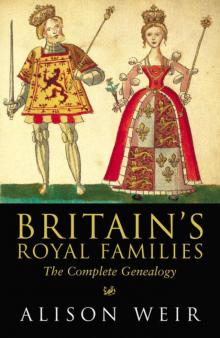 Britain's Royal Families: The Complete Genealogy
Britain's Royal Families: The Complete Genealogy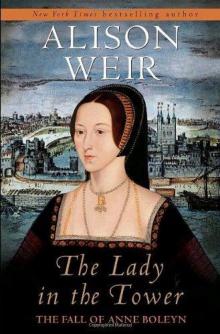 The Lady in the Tower: The Fall of Anne Boleyn
The Lady in the Tower: The Fall of Anne Boleyn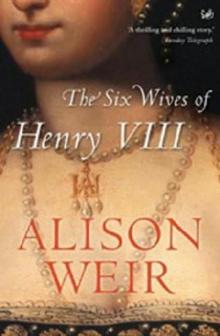 Six Wives of Henry VIII
Six Wives of Henry VIII Elizabeth of York: A Tudor Queen and Her World
Elizabeth of York: A Tudor Queen and Her World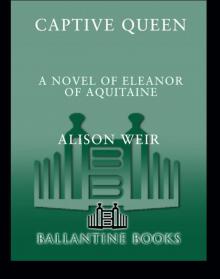 Captive Queen
Captive Queen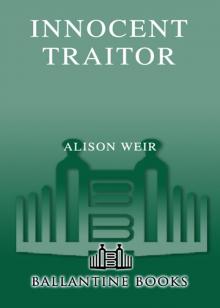 Innocent Traitor
Innocent Traitor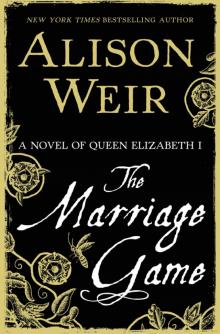 The Marriage Game
The Marriage Game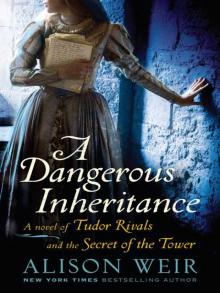 A Dangerous Inheritance
A Dangerous Inheritance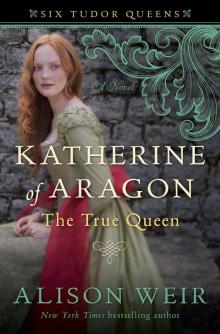 Katherine of Aragón: The True Queen
Katherine of Aragón: The True Queen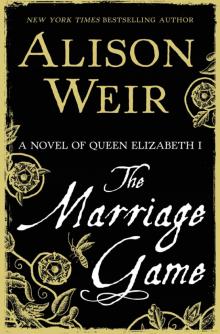 The Marriage Game: A Novel of Queen Elizabeth I
The Marriage Game: A Novel of Queen Elizabeth I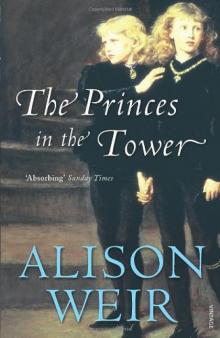 Princes in the Tower
Princes in the Tower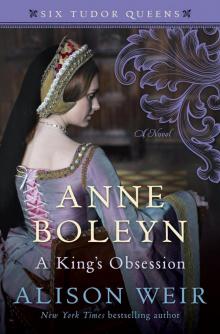 Anne Boleyn: A King's Obsession
Anne Boleyn: A King's Obsession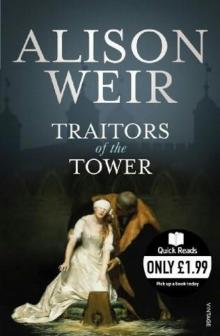 Traitors of the Tower
Traitors of the Tower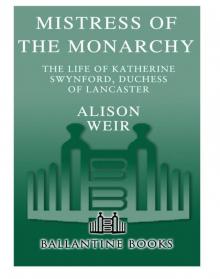 Mistress of the Monarchy: The Life of Katherine Swynford, Duchess of Lancaster
Mistress of the Monarchy: The Life of Katherine Swynford, Duchess of Lancaster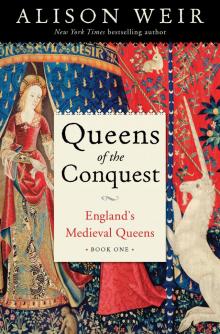 Queens of the Conquest: England’s Medieval Queens
Queens of the Conquest: England’s Medieval Queens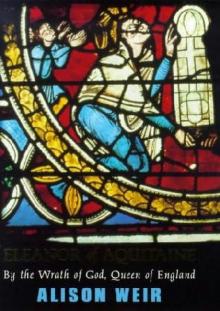 Eleanor of Aquitaine: A Life
Eleanor of Aquitaine: A Life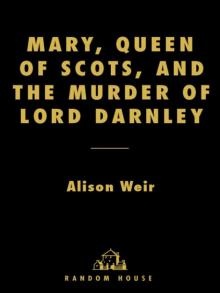 Mary, Queen of Scots, and the Murder of Lord Darnley
Mary, Queen of Scots, and the Murder of Lord Darnley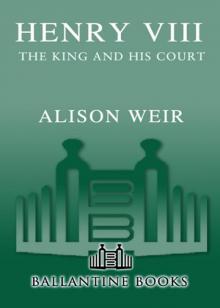 Henry VIII: The King and His Court
Henry VIII: The King and His Court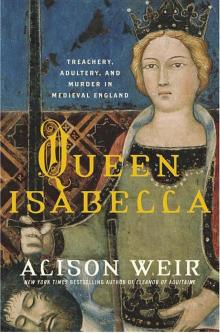 Queen Isabella: Treachery, Adultery, and Murder in Medieval England
Queen Isabella: Treachery, Adultery, and Murder in Medieval England Katheryn Howard, the Scandalous Queen
Katheryn Howard, the Scandalous Queen Arthur- Prince of the Roses
Arthur- Prince of the Roses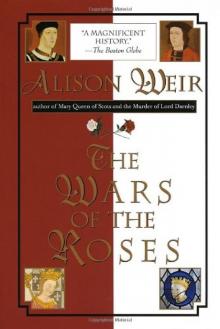 The Wars of the Roses
The Wars of the Roses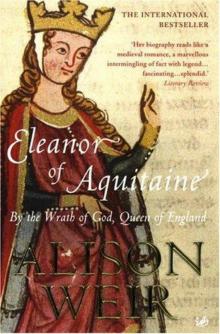 Eleanor of Aquitaine: By the Wrath of God, Queen of England
Eleanor of Aquitaine: By the Wrath of God, Queen of England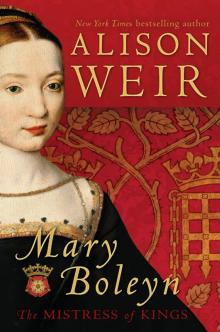 Mary Boleyn: The Great and Infamous Whore
Mary Boleyn: The Great and Infamous Whore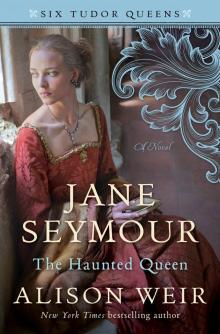 Jane Seymour: The Haunted Queen
Jane Seymour: The Haunted Queen Anna of Kleve, the Princess in the Portrait
Anna of Kleve, the Princess in the Portrait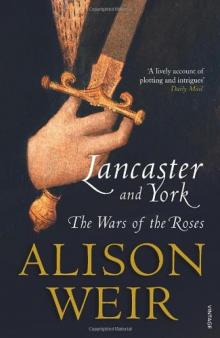 Lancaster and York: The Wars of the Roses
Lancaster and York: The Wars of the Roses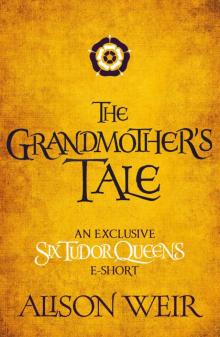 The Grandmother's Tale
The Grandmother's Tale The Princess of Scotland (Six Tudor Queens #5.5)
The Princess of Scotland (Six Tudor Queens #5.5)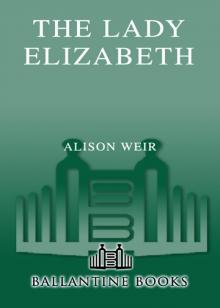 The Lady Elizabeth
The Lady Elizabeth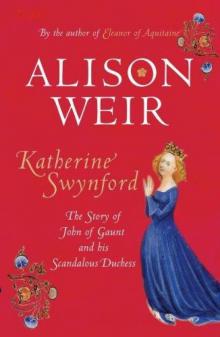 Katherine Swynford: The Story of John of Gaunt and His Scandalous Duchess
Katherine Swynford: The Story of John of Gaunt and His Scandalous Duchess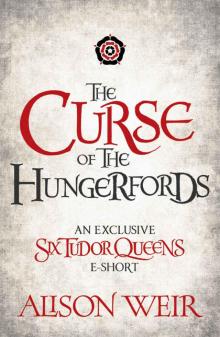 The Curse of the Hungerfords
The Curse of the Hungerfords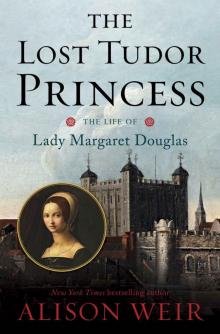 The Lost Tudor Princess: The Life of Lady Margaret Douglas
The Lost Tudor Princess: The Life of Lady Margaret Douglas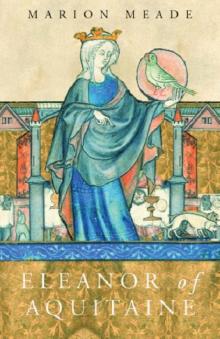 Eleanor of Aquitaine
Eleanor of Aquitaine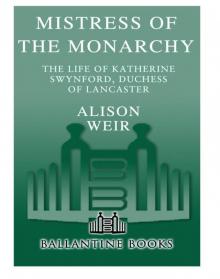 Mistress of the Monarchy
Mistress of the Monarchy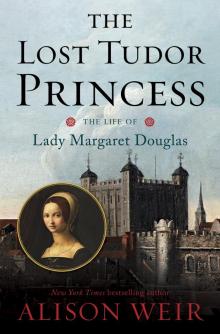 The Lost Tudor Princess
The Lost Tudor Princess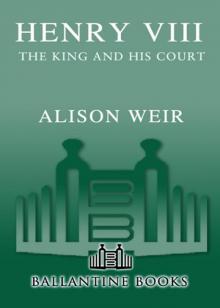 Henry VIII
Henry VIII Anne Boleyn, a King's Obsession
Anne Boleyn, a King's Obsession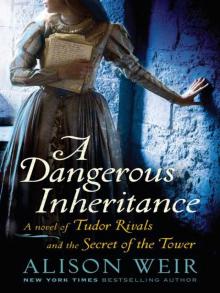 A Dangerous Inheritance: A Novel of Tudor Rivals and the Secret of the Tower
A Dangerous Inheritance: A Novel of Tudor Rivals and the Secret of the Tower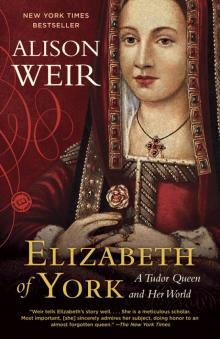 Elizabeth of York
Elizabeth of York Katherine of Aragon, the True Queen
Katherine of Aragon, the True Queen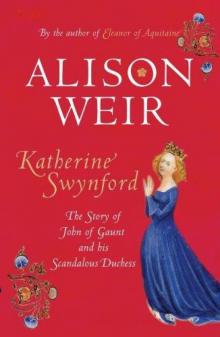 Katherine Swynford
Katherine Swynford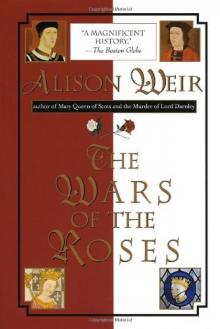 Wars of the Roses
Wars of the Roses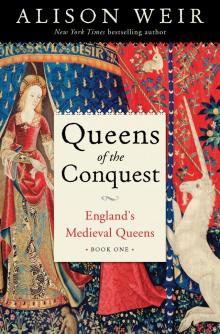 Queens of the Conquest
Queens of the Conquest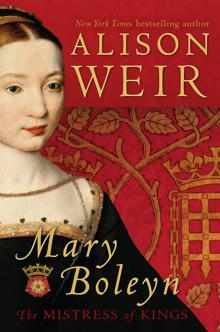 Mary Boleyn
Mary Boleyn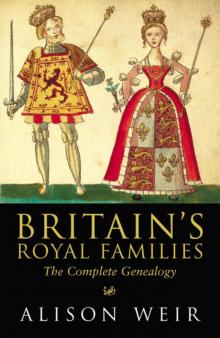 Britain's Royal Families
Britain's Royal Families The Tower Is Full of Ghosts Today
The Tower Is Full of Ghosts Today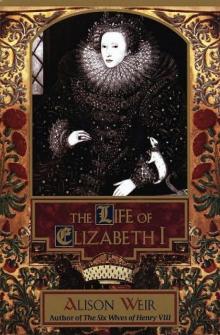 Life of Elizabeth I
Life of Elizabeth I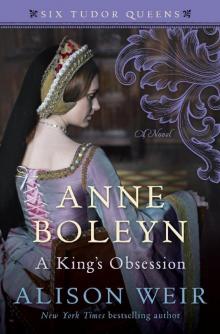 Anne Boleyn A King's Obssession
Anne Boleyn A King's Obssession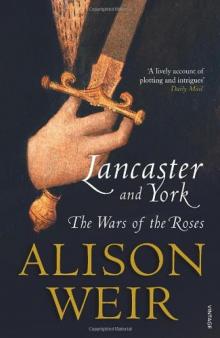 Lancaster and York
Lancaster and York Jane Seymour, the Haunted Queen
Jane Seymour, the Haunted Queen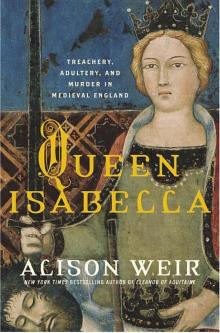 Queen Isabella
Queen Isabella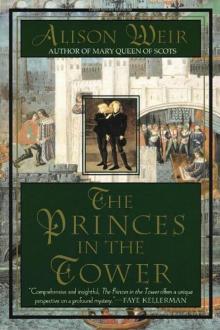 The princes in the tower
The princes in the tower